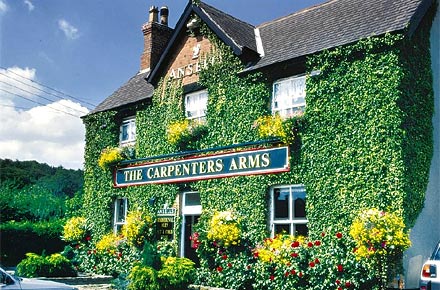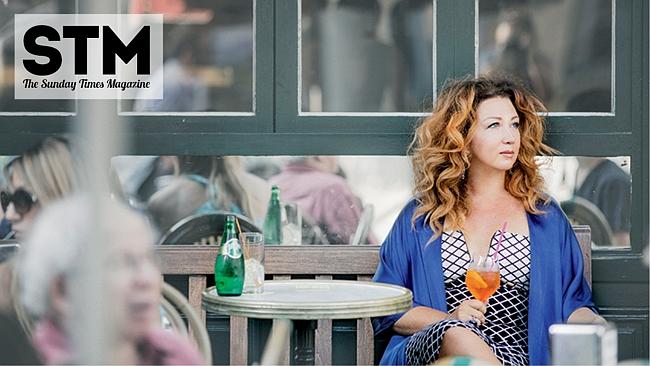Tales of an Eastender from Down Under
WORKING in London is an irresistible dream for many young Australians, but what is it like in reality?

ARRIVING via an overnight bus from Brussels, we pulled into the Victoria Coach Station through a grey drizzle. Out I stepped, a young man with more on my mind than in it.
After a summer backpacking through Europe, where my biggest daily challenge was finding clean underwear, I was now about to throw myself head-first into the tumult of London life.
I started to wonder whether I had made a horrible mistake. I had no job, no house, and almost no money.
That was six months ago. Now, London is home.
Most Londoners hate the Tube
Most mornings I emerge bleary-eyed from my East London cottage and walk to Bethnal Green station and get on the Tube, a sardine tin posing as a form of transport. After a short journey, generally spent with my palms pressed against the window and face buried under someone's armpit, I alight at Bond St.
Changing trains at an underground station, as I do every day, is a surreal experience - an Orwellian mass of workers shuffling in silent unison through endless corridors, faces down, iPods in. Most Londoners hate the Tube but, despite the daily crush, I like it. How can you pass under stops with names such as Marble Arch, Piccadilly Circus and Leicester Square and not feel a small rush of excitement?
I work near Parliament Square, as a journalist for HM Revenue and Customs' media team. Our offices are opposite the Houses of Parliament (indeed, I have an arresting view of Westminster Abbey from my office window), which means I have the dubious honour of appearing in the background of countless tourist photos.
After work I retire to one of Westminster's many watering holes, an interesting but not particularly exciting mix of police officers from nearby Scotland Yard, politicians and tourists. Then it's back on the Tube. Stepping out on to Bethnal Green Rd, with its tattered markets and tawdry shops, always comes as a shock after the grandeur of Westminster.
A history linked to war, crime and death
The Tower Hamlets council, covering the suburbs of Bethnal Green, Whitechapel and Mile End, is among the most deprived areas in Britain. It has the highest unemployment rate in the country (13.2 per cent and rising), knife crime is rampant and, according to a recent BBC report, eight out of 10 children live on the brink of poverty or worse.
Yet I wouldn't live anywhere other than the East End. It is endlessly fascinating and steeped in history - albeit a history inexorably linked to war, crime and death.
I often carry Peter Ackroyd's 800-page tome London: The Biography with me on solitary walks around the city - a habit arguably on par with grown men who collect Star Wars figurines. But I find reading about the disaster, famine and plagues that have tormented Londoners for centuries almost comforting during these times of financial doom and gloom. I take solace in the people who lived on these very streets before me - whether it be in nearby Spitalfields, the epicentre of the plague outbreak in 1665, or the cholera epidemics in Limehouse during the 19th century.
A histroy best told through pubs
The budding alcoholics among us will argue that London's history is best told through its pubs, and nowhere is that truer than the East End. The Carpenters Arms, now a fashionable but friendly pub on Cheshire St behind Brick Lane, was once owned by notorious London gangsters the Kray twins.
The nearby Ten Bells, where barmen were pulling pints long before Australia was colonised, is believed to be where Jack the Ripper met one of his victims before subjecting her to a violent and messy death. What stories those walls could tell.
Now, before we go any further, I must confess my dirty little secret - the Misty Moon. It's an establishment whose only redeeming feature is that it is the closest pub from my front doorstep, but it is so dreary, so lifeless, and so ugly that you can't help but fall in love with it. Everything from the poor lighting, the urine smell, the touching but woefully inadequate Thai menu - it's all just perfect. What better place to become enamoured with modern British culture?
Saturday mornings are best spent at Broadway Market, a hidden gem full of cosy pubs and gourmet food. Built on an ancient drover's road from Essex to the slaughterhouses of Smithfield, it is one of London's finest examples of urban regeneration, turning from a ghetto into prime retail space.
London's "cool central"
Further west is Shoreditch, best reached via the sights and smells of the Columbia Rd flower markets, always packed on weekends and full of chirpy Cockney accents. Shoreditch has been London's "cool central" for well over a decade and is packed with discreet art galleries, vintage shops and lively pubs.
Nearby Brick Lane has its Sunday market with a glut of curry houses and Del Trotter-style illegal street traders who scurry off at any sign of police. Once the sun sets, the East End really comes alive. The choices are endless. Regular haunts include Ye Olde Axe on Hackney Rd (sleazy strip club by day, '50s rockabilly dance hall by night), Spanish-themed sports bar Kicks on Shoreditch High St, and the Old Blue Last, always packed to the rafters.
The best pubs are the most simple - no pokies, just decent beer, quality food and a chance to revive the lost art of conversation.
It's the contrast - the flair versus filth, the style amid squalor - that makes east London so appealing. And here's the thing: I am nowhere near exhausting the delights of my neighbourhood, let alone the rest of the East End. There are still so many unexplored streets, markets, shops, museums and galleries.
FAST FACTS
Getting there: Options to London from Adelaide include Qantas, Singapore Airlines and Malaysia Airlines
Visa: The UK has a variety of schemes which allow Australians to work. However, don't expect to turn up at the airport with a visa and expect to be allowed to seek work. Authorities take a dim view of such people, especially if they find anything, such as a CV, indicating you intend to seek even casual work.Find out under what category you may be eligible for a work visa and obtain it before you leave Australia.
For visa information, including for employment, see the British High Commission at www.ukinaustralia.fco.gov.uk, ph 02 6270 6666.
Details: See www.visitbritain.com.au or www.visitlondon.com



